How To Save Money While Travelling In A Van

Life can be expensive. Bills, groceries, transportation, medical costs, and socialization can all add up to costly months. One great aspect of van life is that you are capable of saving a lot of money. So, how do you save money while living in a van?
Saving money while living in your van will take some diligence and commitment. Assuming your bases are covered, it is possible to not spend as much while vehicle dwelling. Cooking and groceries, transportation costs, choosing the right activities, where to sleep, and planning where you'll go are some of the significant factors in saving money while on the road.
Just starting out and want a bit more information before diving in? Check out Van Life - The Definitive Guide for answers to all of your questions!

Table Of Contents
Cooking And Groceries
Transportation Costs
Choosing The Right Activities
Where To Sleep?
Planning Where To Go
Conclusion
Cooking And Groceries

While attempting to save money, what you chose to eat can have a big impact. Being smart with your groceries and avoiding eating out are some major factors in saving money in this category. From not wasting food to eating strategically so you don't buy something on impulse, there are ways to make your money take you further.
Most people love socializing, and getting out with some friends for dinner is a great activity. However, it's incredibly expensive compared to cooking at home. Instead, why not offer to cook for your friends out of your van? Or perhaps have a potluck in a park? Or even a BYOB (bring your own beverage/ beer) movie night in the woods with a projector playing a movie on the side of your van. There are many ways to cut back on the costs of restaurants and bars.
When comparing my experience of cooking burgers in my van vs. sitting down at a restaurant somewhere, it's significantly cheaper to make your own. Take a look at these sites to see some more in-depth comparisons. You also save money on tips and save on anything other than drinking water.
Setting yourself up for success is an important step. When hunger strikes and a lack of motivation arises, it's easy to eat out or get fast food. Having easy, quick, and tasty food at hand can save you in these instances. My no-cook yogurt and granola meal is perfect for these types of situations. (Even if I do leave the dishes for another time.) Also, having the right gear that is easy to use can enable you to cook more instead of eating out.
I enjoy "spending category" freezes. Since I have a sweet tooth, I often create weekly challenges where I don't spend money on a category like no baked goods. I've also done no partially prepped foods, like bagged salad, or pre-made burgers. It's a fun way to cut back on the cost of convenience.
I'm always comparing the cost per unit price at grocery stores. I was hesitant to mention this tip, but I've come across too many people who didn't know about it to let it pass. It's essentially getting the most bang for your buck. You might notice that bulk items can be cheaper, but be careful. Just because it's cheaper to buy 24 eggs, it doesn't mean you won't waste them.
Transportation Costs

Often referred to as our rent, fuel is something we need to keep our tiny homes rolling. It allows us to travel to get groceries, to the office, to the trailhead, and to our free camp spots. It quickly becomes the most expensive part of our lives.
Saving fuel by means of not idling, going the speed limit (which prevents speeding tickets too!), keeping the music low (I joke), and driving defensively can all have an impact on your fuel consumption.
Another important aspect is fuel prices. Prices can vary by a few cents from station to station, but it can be a huge difference from town to state to country. Using apps like gas buddy, google maps, and sometimes iOverlander can help you choose the best spot to fill up. Sometimes gas stations have membership cards that can take 10c off every gallon, or some form of reward.
My last tip for this category is the "no travelling more than 300 miles, or after 3:30" rule. When we travel less than 300 miles, we use less fuel. Sure, it might mean getting somewhere more slowly, but it does decrease our fuel consumption. Same as not travelling after 3:30. Together, these two aspects of the rule allow us to travel more slowly and potentially enjoy an area more than if we blazed through.
Choosing The Right Activities

If you're like me, you prefer to be one with nature. Due to this, I enjoy many different outdoor activities. These activities, while potentially free, can become quite expensive, quite quickly. Hiking and rec permits, ski lift passes, and gear rental expenses can add up during your pursuit of enjoyment.
Another aspect of this topic is the overhead cost. Gear is expensive. Check out this hierarchy of frugality when you need particular items.
The pyramid of Frugal life from Frugal
The buyerarchy of needs
Alternatively, if you want breweries or movie theatres, this can all be done in the comfort of your van too. Being more conscious about the activities you chose to pursue can help save some money while living in your van.
Here's a little tidbit that might save someone in a pinch. I've tried to pay at National parks multiple times, and have been told that I don't need to pay to enter. I can "pay it on the way out", they say. Now, I'm usually a rule follower, but they make it pretty hard to follow when their booths/ offices are closed on my way out.
That said, it is also possible to enjoy your activities without ever having to pay. Choosing to save money this way might mean skipping national parks, or BLM areas that have annual fees. Sure, you might miss out on some of the most popular places, but they're usually incredibly crowded, and less serene than going off into the wilderness on your own.
Where To Sleep?

When you're on the road, and already paying obscene amounts of money for fuel to keep your adventures going, you might want to cut out the cost of paying for somewhere to park your vehicle. Sometimes it's nice to have access to places like campgrounds for laundry, showers, safety, and amenities. Trust me, these can be found elsewhere with a bit of research.
Take a look at this review of iOverlander. iOverlander is a great resource that lists a ton of free camping sites. On top of free campsites, it also lists a lot of places like laundromats and showers. Take a look at this post for more details on some of the main types of areas we can park as vehicle dwellers.
Since departing and being on the road for just over a month straight, I haven't yet paid for a place to stay. This is the sacrifice I make due to other expenses being a bit higher. Because I have a gym membership, I don't need campgrounds for access to their showers. Because I have the membership and enjoy going, I end up in town, so I can do laundry at a nearby laundromat. Also, I've always felt safe and trusted my spidey senses when rolling into a site.
Don't let this deter you from staying in the best places though. If somewhere really has a beautiful campground that seems worth it to you, by all means, go for it! I very much dislike sharing spaces with people in this way. Of course, your campsite should be yours, but kids don't always play by the rules when kicking soccer balls through your sites. And, off-leash dogs can't interpret human rules when peeing on your tires.
Planning Where To Go

Where you go will dictate a lot of different expenses. There are places where it's considered a high-cost-of-living area. Usually, this means things like rent, fuel, food, and entertainment are more expensive than the low-cost living areas.
Some places aren't very friendly to people sleeping in their vehicles, so it might be best to avoid those areas too since you don't want to have any other option than to stay at a campground.
There are places that cost money to get to as well, like national parks, some BLM areas, and border crossings. Depending on how frugal you want to be, and how much you detest crowds, it might be best to skip these locations.
Since I've been on the road, mostly in the USA, I've noticed the drastic price difference between USD and CAD. Sure, on the surface, things seem to be the same price. After the exchange, it hurts to pay nearly 30% more. While I'm enjoying my travels and sightseeing in a new country, I'm excited to go back to my home country where my dollar takes me farther than here.
Conclusion
A big reason for pursuing van life is to save money. If done properly, living this way can have a positive impact on your finances. Taking the right steps is important as being mindful of how you spend your time and money is critical. Cooking instead of eating out and being mindful of your groceries can help save money. Researching fuel prices can help too. Choosing the right activities, sleeping for free, and planning where you'll go can all have a meaningful impact on how much you spend in a month.


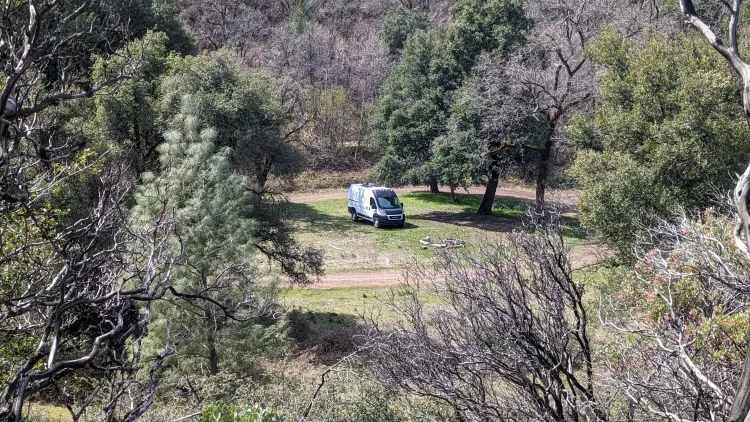
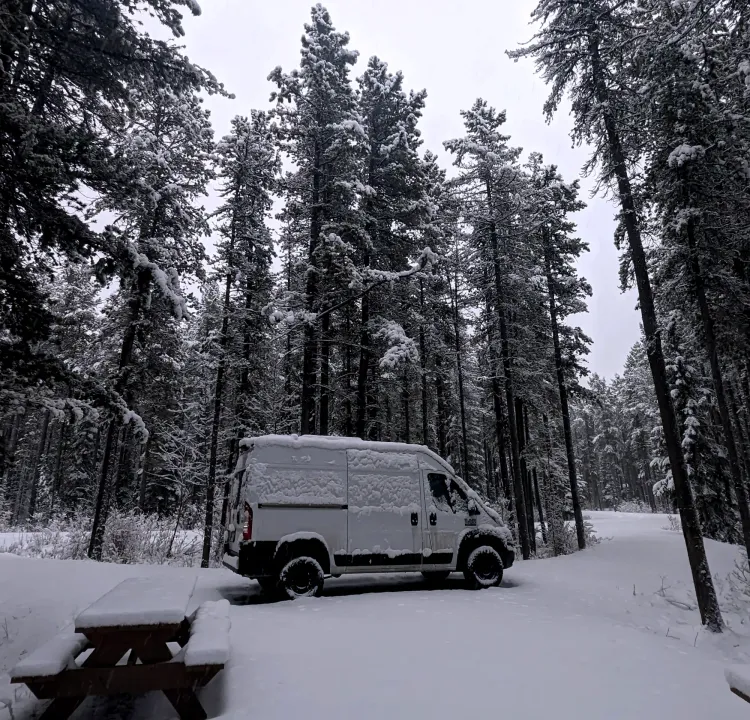
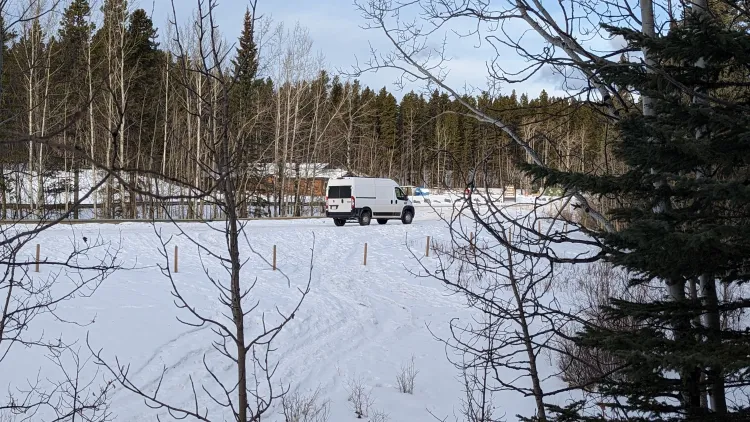
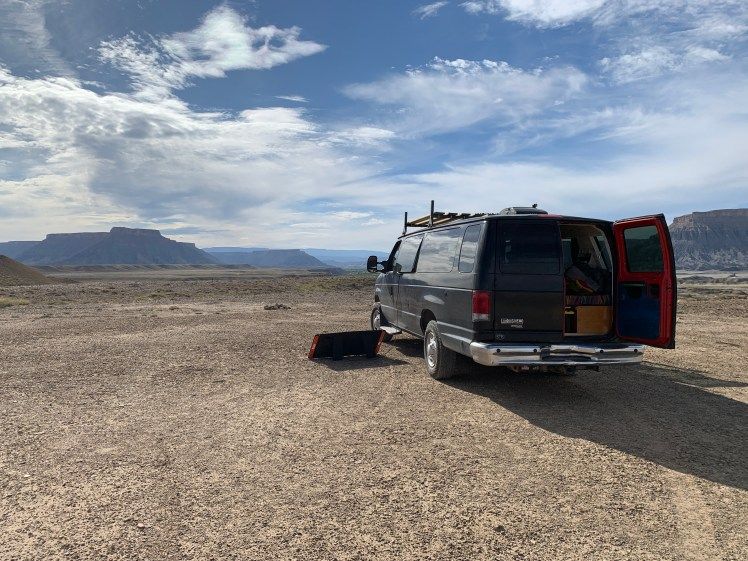
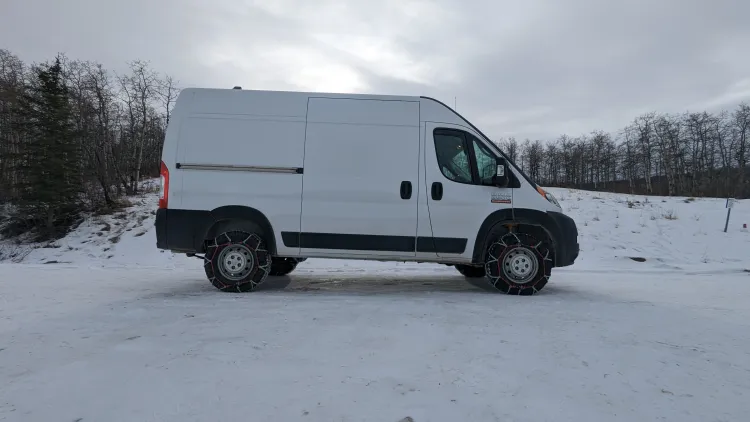
Member discussion